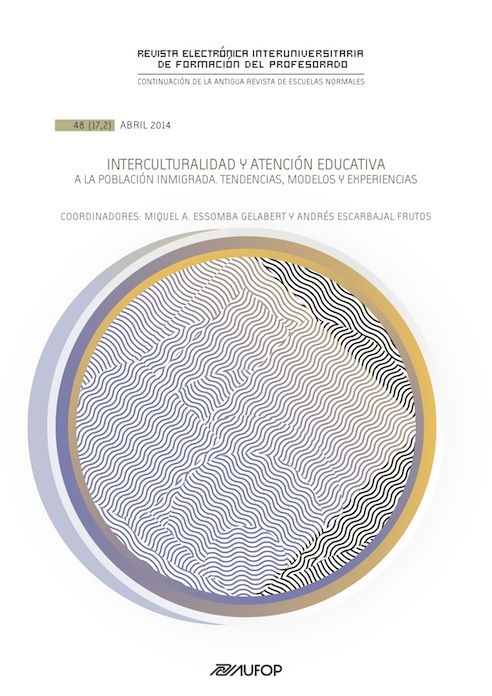Educational inclusion of immigration and teachers´ intercultural training
Abstract
The inclusion of individuals from different ethnic and cultural backgrounds has become one of the main challenges of pluralistic and democratic societies. School is one of the nerve centers so that this challenge could be assumed and managed efficiently, both under regulatory provisions and as pedagogical functionality.
Thus, teachers’ intercultural education is an essential part of organizational and curricular gears focused on acquiring useful skills in a global world. Starting from the basic premise that such training should consider the field of cooperative learning techniques, we conducted an exploratory study with a sample of 368 Early Childhood and Primary teachers (cluster sampling), aimed at the detection of training needs in this field.
The study is concluded by requesting, among other improvements, the introduction of contents of intercultural scope in teachers’ initial and continuous training, the application of the school as a unit of training activity, and the creation of strategic bonds between universities and the educational administration, keeping in mind the development of intercultural competences from within the educational system.
Downloads
-
Abstract6779
-
PDF (Español (España))3675
Los artículos que se publican en esta revista están sujetos a los siguientes términos:
1. El Departamento de Métodos de Investigación y Diagnóstico en Educación de la Universidad de Murcia (España), junto con el Servicio de Publicaciones de la Universitdad de Murcia (Editum) son los editores de la revista REIFOP y conserva los derechos patrimoniales (copyright) de los artículos publicados, permitiendo la reutilización de las mismos bajo la licencia de uso indicada en el punto 2.
2. Las obras se publican en la edición electrónica de la revista bajo una licencia Creative Commons Reconocimiento-NoComercial-SinObraDerivada 3.0 España (texto legal). Se pueden copiar, usar, difundir, transmitir y exponer públicamente, siempre que: i) se cite la autoría y la fuente original de su publicación (revista, editores y URL de la obra); ii) no se usen para fines comerciales; iii) se mencione la existencia y especificaciones de esta licencia de uso.
3. Condiciones de auto-archivo. Se permite y se anima a los autores a difundir electrónicamente las versiones pre-print (versión antes de ser evaluada) y/o post-print (versión evaluada y aceptada para su publicación) de sus obras antes de su publicación, ya que favorece su circulación y difusión más temprana y con ello un posible aumento en su citación y alcance entre la comunidad académica. Color RoMEO: verde.















